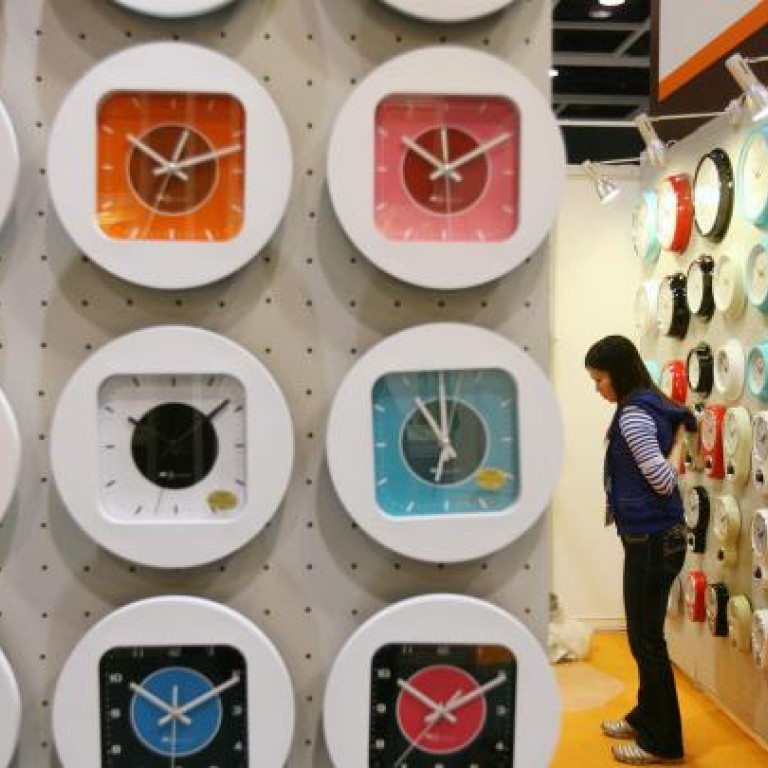
Hong Kong watchmakers do well as yen weakens
HK watchmakers will do well from Japan's faltering currency, which will reduce parts costs. But not everyone is cheering
Local watchmakers are set to benefit from the depreciating yen, with Japan a key exporter of movement parts and refined steel components to the city's timepiece companies.

It is a double whammy as a strong yuan inflates input costs while a weak yen cuts the selling price in dollar terms.
However, Hong Kong, which exported US$9.5 billion worth of timepieces last year, was the world's largest importer of assembled movements, of which 57 per cent, or US$452 million, were from Japan, said Ho.
"The weakness in the yen, which is expected to fall at a range of 5 to 10 per cent, will be reflected in renewed sourcing contracts this year," said Li Shau-hung, president of the Hong Kong Economic & Trade Association.
Li also owns a watch design and manufacturing company, Campbell International.
In addition to movement parts, the refined steel for high-value watch cases also comes from Japan, said Li.
On average, components from Japan account for 30 per cent of the total production cost of Hong Kong's watchmakers, said Li.
Hong Kong, meanwhile, exported US$810 million worth of finished timepieces to Japan last year, which accounted for 8.6 per cent of the city's total exports in 2012, said Ho.
The top three markets for Hong Kong watches and clocks are the United States, Switzerland and mainland China, which account for 15 per cent of the market share each.
Stanley Lau, deputy chairman of the Federation of Hong Kong Industries, said there were pros and cons to the softening of the yen. While every 10 per cent decline of the yen reduces manufacturers' operating costs by about 3 per cent, "our buyers in the US and Europe will know about the pricing and may ask for a 5 per cent discount in the selling price in return", Lau said.
Most analysts say the Shinzo Abe administration is pursuing a policy to weaken the Japanese yen in a bit to shore up the economy by stimulating exports. The yen has depreciated more than 13 per cent against the US dollar since the new government was inaugurated in December.
However, investment banks are still conservative about the projection on the strength of the US dollar versus the yen. Credit Suisse has revised the target to 92 yen per dollar in three months and 94 in 12 months.
